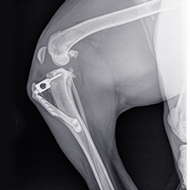Vets who have been qualified for five years or more are least optimistic about the future, rating their opportunities for progression less positively than more recent graduates.
Survey results dubbed 'a wakeup call' to the profession
Just half of veterinary surgeons who graduated within the last eight years say their career has met their expectations, according to a new survey.
Forming the latest output from Vet Futures, a joint initiative powered by the RCVS and the BVA, the survey reveals that 50 per cent of veterinary surgeons are partly or wholly unsatisfied with their career. Of these, 10 per cent said that they were considering leaving the profession entirely.
The results have been dubbed 'a wakeup call' by the RCVS and the BVA.
BVA President, John Blackwell, said: “The drop off in career satisfaction for vets during this crucial first eight years in practice is something we can’t afford to ignore. It points to frustration over career development opportunities and dissatisfaction with support available in practice.
"For the veterinary profession to remain sustainable, and an attractive career choice for the best and brightest, we need to address these issues with some urgency.”
The online survey gathered views from 892 veterinary students and 1,973 veterinary surgeons who had graduated within the last eight years.
It found that vets who have been qualified for five years or more were least optimistic about the future, rating their opportunities for progression less positively than more recent graduates. These vets were also less likely to feel that their degree had prepared them for their current work.
The survey also reveals that just under three-quarters of students (73 per cent) intend to work in the UK, with most aspiring to work in small animal/exotic or mixed practice. 45 per cent said that they wanted to become practice owners or partners. However, this aspiration fell to 25 per cent among graduates.
RCVS President, Dr Bradley Viner, added: “We clearly need to address the disconnect between expectation and reality for many recent graduates. Reviewing the educational foundation of the profession is a thread that runs through many of the proposed actions that will be outlined in the Vet Futures report due this autumn.
"The teaching and assessment of non-clinical skills – both as part of the undergraduate curriculum and within postgraduate education – will be important, as will be the promotion of non-clinical career pathways."
The full research report “Voices from the future of the profession,” can be read at www.vetfutures.org.uk/resources.







 Birmingham Dogs Home has issued an urgent winter appeal as it faces more challenges over the Christmas period.
Birmingham Dogs Home has issued an urgent winter appeal as it faces more challenges over the Christmas period.
